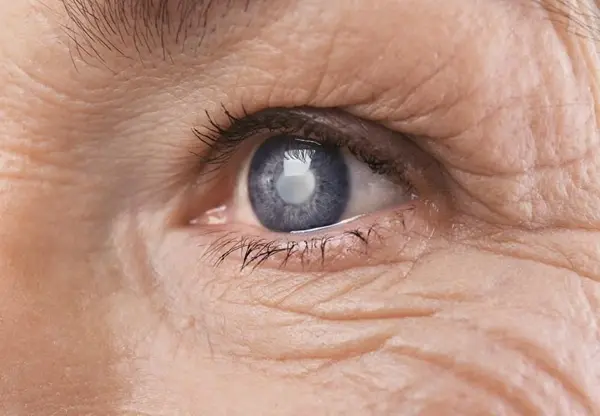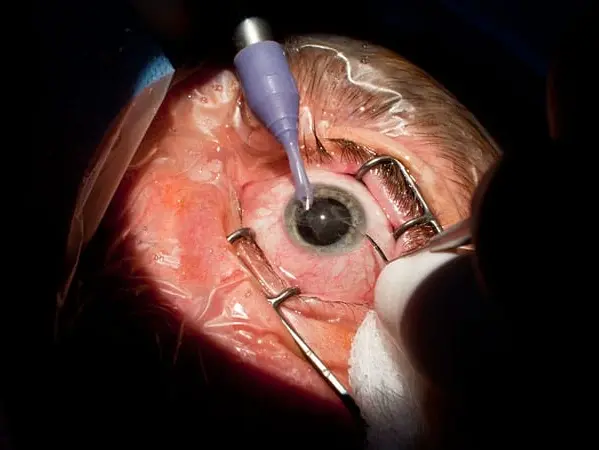
Cataracts are one of the most common age-related eye conditions, gradually affecting vision over time. At DRHC Dubai, we believe that understanding the stages of cataract progression is essential for early detection, timely treatment, and preserving your vision.
In this blog post, we’ll walk you through the different stages of cataracts, their symptoms, and when to consider treatment options such as cataract surgery.
What Are Cataracts?
A cataract is the clouding of the eye's natural lens, located behind the iris. This clouding prevents light from passing clearly through the retina, leading to blurry or dim vision. While cataracts can develop due to various reasons—such as aging, diabetes, eye injuries, or prolonged use of certain medications—the most common cause is age-related degeneration.
Stages of Cataract Progression
Cataracts usually develop slowly over several years, progressing through the following four stages:
1. Early Cataract (Initial Stage)
Symptoms:
- Slight blurriness or cloudiness in vision
- Glare or halos around lights, especially at night
- Difficulty seeing clearly in bright sunlight
- Changes in prescription glasses
What's Happening:
Protein deposits begin to form in the lens, causing minimal visual impairment. You may not even realize you have cataracts during this stage.
Management:
Frequent eye checkups, updated glasses prescription, and UV protection can help maintain vision and slow progression.
2. Immature Cataract (Developing Stage)
Symptoms:
- Noticeably blurred or hazy vision
- Increased sensitivity to light
- Colors may appear faded
- Difficulty with night driving
- More frequent changes in eyeglasses
What's Happening:
The lens becomes increasingly opaque. Cataract-related symptoms become more prominent and start affecting daily tasks.
Management:
Non-surgical solutions may provide temporary relief, but ophthalmologists may begin discussing surgical options if your lifestyle is significantly impacted.
3. Mature Cataract (Advanced Stage)
Symptoms:
- Significantly blurred or cloudy vision
- Poor vision even with corrective lenses
- Increased risk of falls or accidents due to poor vision
- Difficulty reading, watching TV, or recognizing faces
What's Happening:
The entire lens has become clouded. This stage often leads to a substantial reduction in visual acuity.
Management:
Cataract surgery is usually recommended at this stage. It is a safe and effective procedure that replaces the cloudy lens with an artificial intraocular lens (IOL).
4. Hypermature Cataract (Overripe Stage)
Symptoms:
- Vision may be nearly or completely lost in the affected eye
- Eye inflammation or pressure (secondary glaucoma)
- The lens may shrink and become dense
What’s Happening:
The lens becomes hard and shrunken, sometimes leaking proteins that can lead to inflammation or other eye complications.
Management:
Immediate surgical intervention is necessary to prevent permanent vision loss or further complications.
Explore Our Related Blogs
- What is a Cataract and How Does it Affect Your Vision?
- Early Signs of Cataracts You Shouldn’t Ignore
- Cataract vs. Other Eye Conditions: What’s the Difference?
Why Early Detection Matters
Cataracts are progressive but treatable. Early diagnosis through regular eye exams allows your ophthalmologist to monitor progression and determine the ideal time for surgery—before your vision becomes significantly impaired.
Expert Cataract Care at DRHC Dubai
At Dubai Retina & Eye Clinic, we specialize in comprehensive cataract evaluations and advanced cataract surgery using premium intraocular lenses (IOLs). Our experienced eye surgeons utilize the latest techniques to ensure safe, precise, and comfortable outcomes for our patients.
Don't wait for your vision to deteriorate. If you’re experiencing symptoms of cataracts or simply want a professional eye checkup, book your consultation today at DRHC Dubai.
To schedule an appointment, call us at +97142798200 or visit www.drhc.ae









Leave a comment